Building Strategies for Inclusive Growth
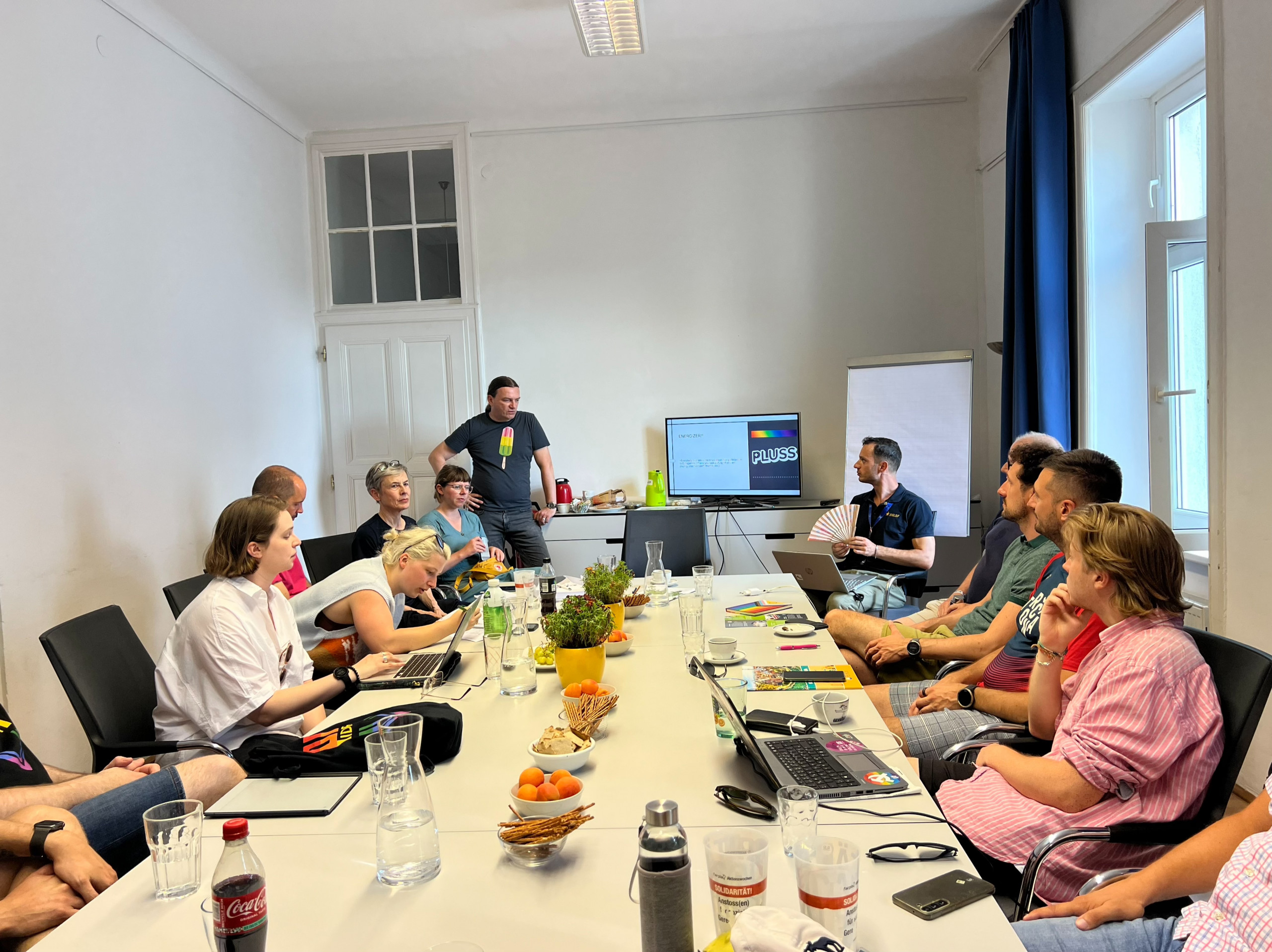
The PLUSS project, titled “+PLUSS: LGBTIQ+ Policy and Leadership in Sport and Society,” has recently submitted one of its deliverables, the Strategy Documents for Clubs’ Development, to the European Education and Culture Executive Agency, funder of the project through the Erasmus+ programme. This initiative, led by EGLSF, emphasises capacity building and strategic development for LGBTQI+ sports clubs, aiming to foster growth, sustainability, and inclusivity.
After thorough discussions during the last PLUSS partnership meeting in Vienna, this deliverable focuses on strategies designed by six grassroots LGBTQI+ sports clubs, to be implemented during 10 months. These clubs include Queer Sport Split (Croatia), Out for the Win (Belgium), Atlasz Sport Club (Hungary), Out in Slovenia (Slovenia), Team München (Germany), and Pan Idræt København (Denmark).
This article delves into the strategies crafted by these grassroots organisations, highlighting their unique approaches to fostering LGBTQI+ inclusivity in sports.
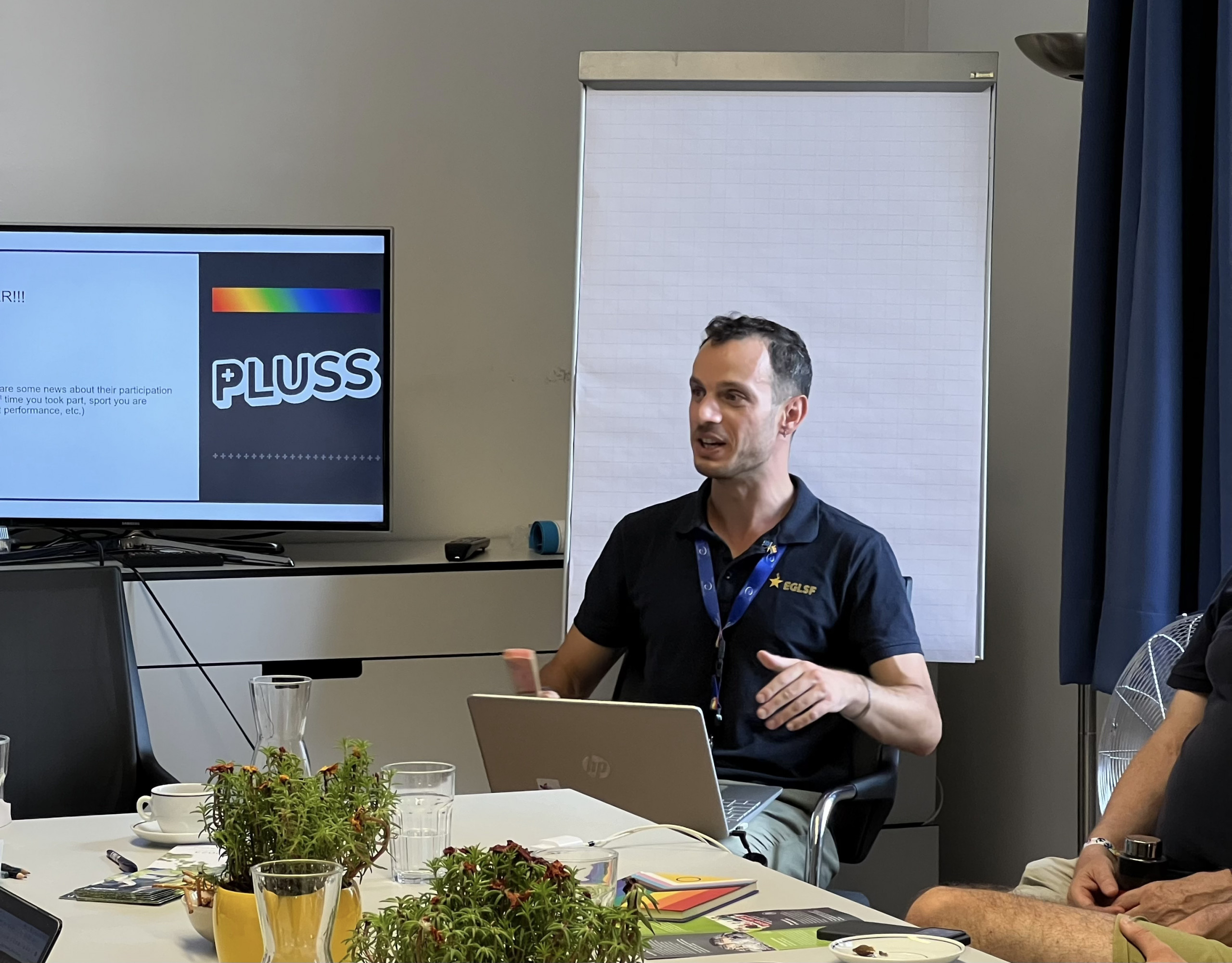
Queer Sport Split (Croatia)
Queer Sport Split is committed to empowering the LGBTIQA+ community in Croatia through mental health support and recreational sports. Their strategy includes expanding programs in volleyball, swimming, and hiking, while pursuing financial stability via fundraising and project participation. By rebranding, they aim to enhance visibility and outreach.
Key Initiatives:
- Providing psychosocial support services that have received positive community feedback.
- Organising diverse activities that foster connections among LGBTIQI+ individuals.
- Engaging with the community through improved communication strategies.
Out for the Win (Belgium)
Founded in 2016, Out for the Win focuses on structural growth with an emphasis on governance and communication. Their strategic goals include expanding participation in sports and increasing visibility through advocacy and storytelling.
Key Initiatives:
- Amplifying LGBTIQA+ athletes' voices through advocacy.
- Implementing educational programs that have positively impacted participants.
- Enhancing community engagement through increased volunteer participation.
Atlasz Sport Club (Hungary)
Atlasz, established in 2004, seeks to grow its membership base, particularly among younger individuals and expatriates. Their focus on cooperation with other LGBTIQA+ organisations and multinational companies is key to their strategy.
Key Initiatives:
- Creating a supportive community through inclusive sports activities.
- Employing strategic goals for membership growth and governance improvement.
- Organising events that foster community and raise visibility.
Out in Slovenia (Slovenia)
As a pioneering organisation established in 2010, Out in Slovenia aims to increase participation in sports events and advocate for LGBTIQA+ issues within national policy. Their focus on marginalised groups, including FLINTA and TIN populations, is paramount.
Key Initiatives:
- Enhancing visibility through community events and collaboration with other organisations.
- Addressing challenges faced by LGBTIQA+ individuals in mainstream sports.
- Promoting inclusivity through future sports activities and community engagement.
Team München (Germany)
Team München, the largest queer sports club in Bavaria, is committed to enhancing member engagement and professionalising governance. Their strategy includes the use of digital tools to boost communication and visibility.
Key Initiatives:
- Implementing new events to attract a diverse membership.
- Ensuring inclusivity in sports activities through training and guidelines for coaches.
- Creating a feedback mechanism for members to share their experiences.
Pan Idræt København (Denmark)
Founded in 1984, Pan Idræt København provides over 25 sports and activities aimed at creating inclusive environments for LGBTIQA+ individuals. Their strategic focus includes national advocacy and securing sponsorships for events.
Key Initiatives:
- Developing flexible membership options to cater to diverse needs.
- Strengthening governance through a comprehensive code of conduct.
- Enhancing visibility and outreach to attract new members from the LGBTIQA+ community.
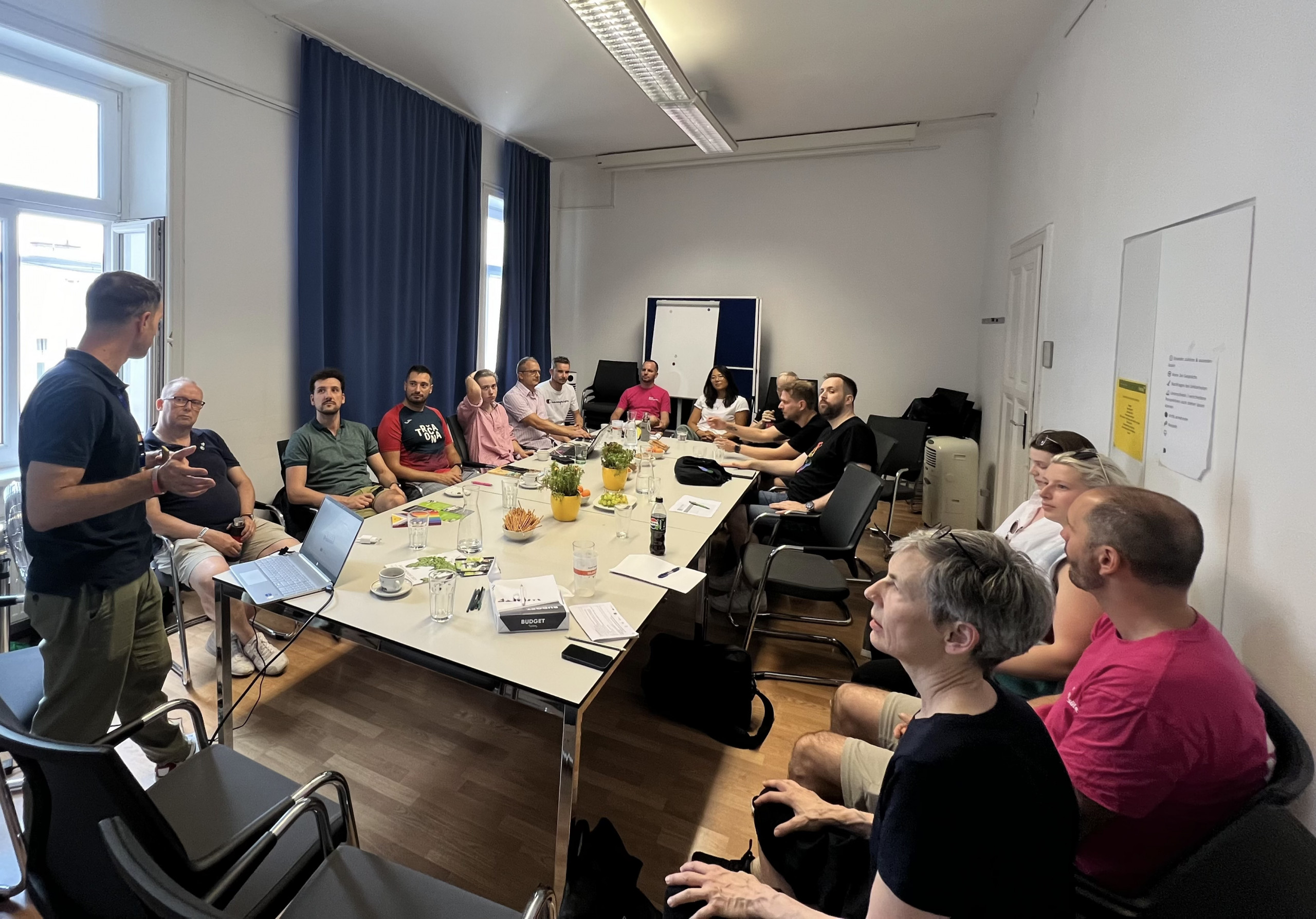
Conclusion
The strategies outlined by these six LGBTIQ+ sports clubs reflect a shared commitment to fostering inclusivity, safety, and community engagement. By addressing the unique needs of their communities, these organisations are paving the way for a more inclusive sporting environment.
As the PLUSS project progresses, these clubs will continue to implement specific actions and measurable indicators to monitor their growth and impact.
Stay tuned for a series of articles that will dive deeper into each partner’s initiatives and developments. Join us in supporting these vital efforts to create a more inclusive world for LGBTIQ+ individuals in sports!
Keep up-to-date through our social media, subscribe to EGLSF’s newsletter and visit the PLUSS project dedicated section in the EGLSF website!
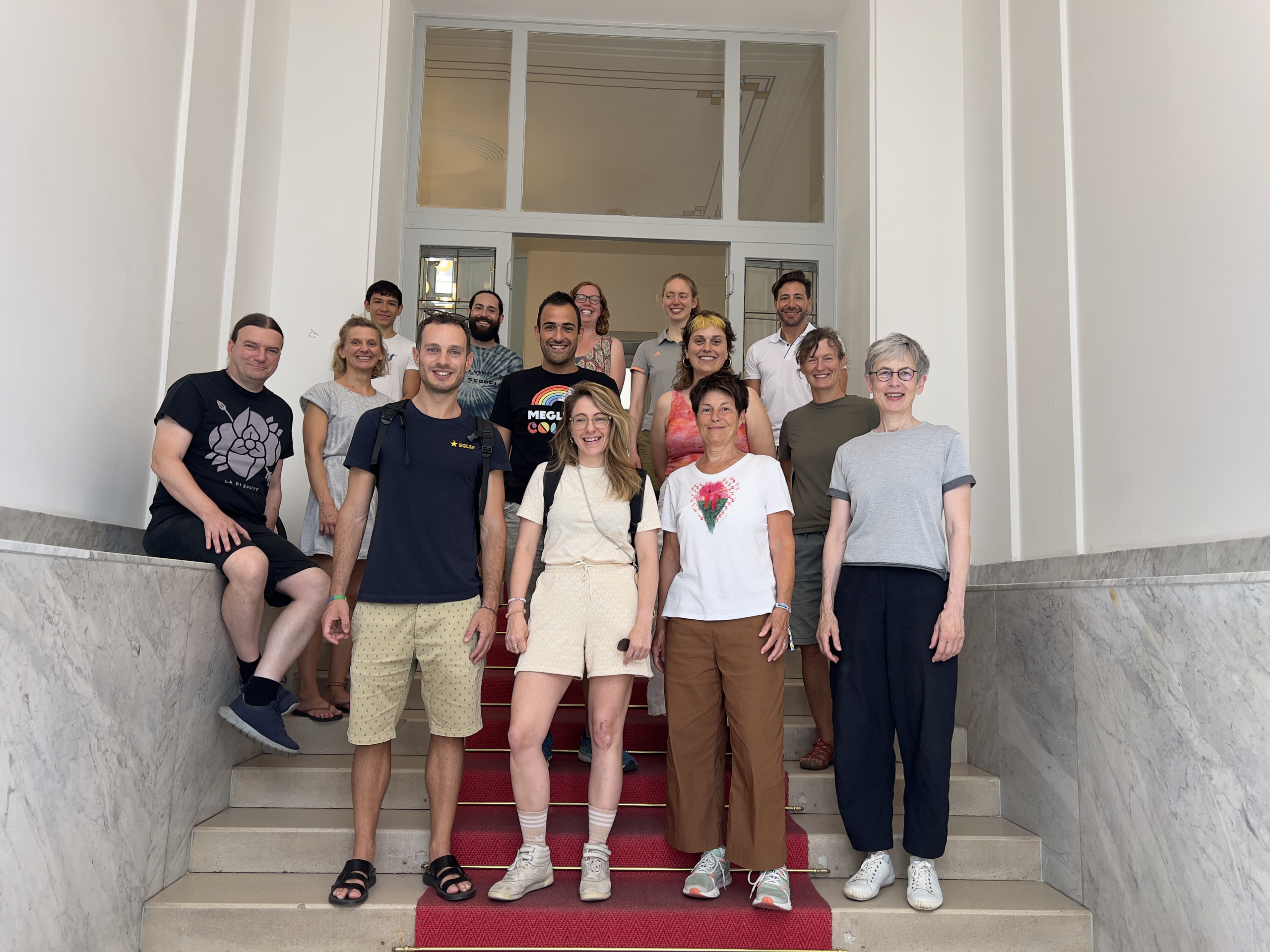
PREVIOUS ARTICLE:
PLUSS Project Meeting at EuroGames Vienna 2024
A Milestone in LGBTQI+ Sport and Leadership
Keep up to date through our social media, newsletter and the PLUSS dedicated section in the
EGLSF webpage! +PLUSS PROJECT - EGLSF.info
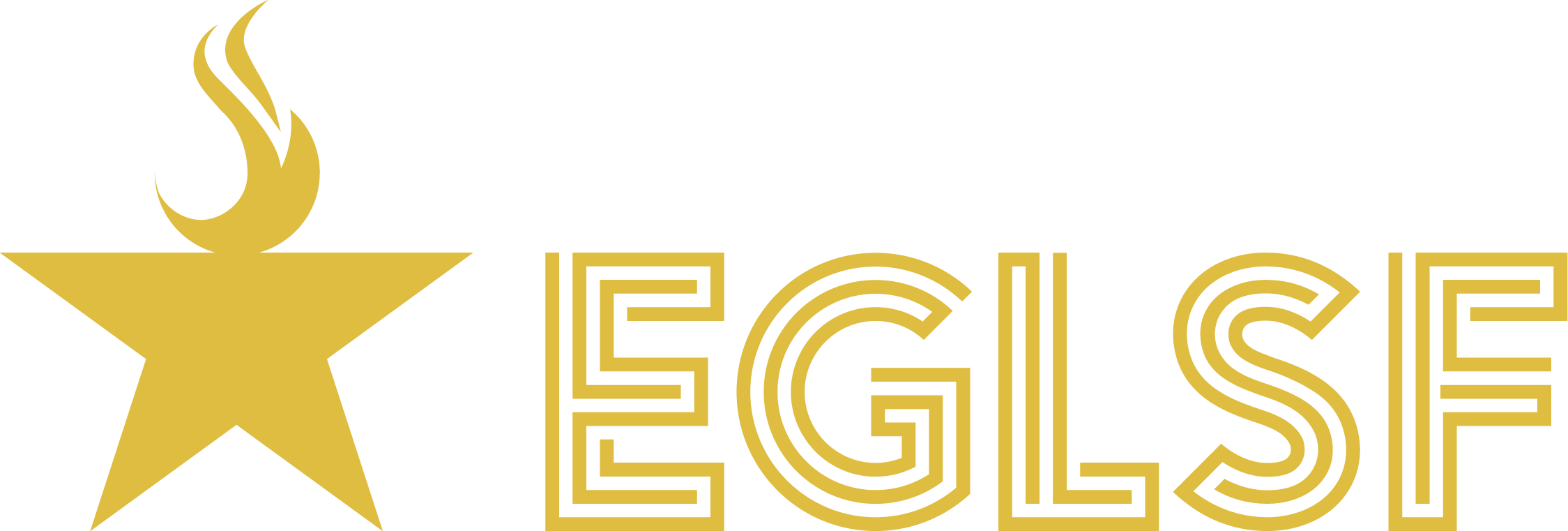
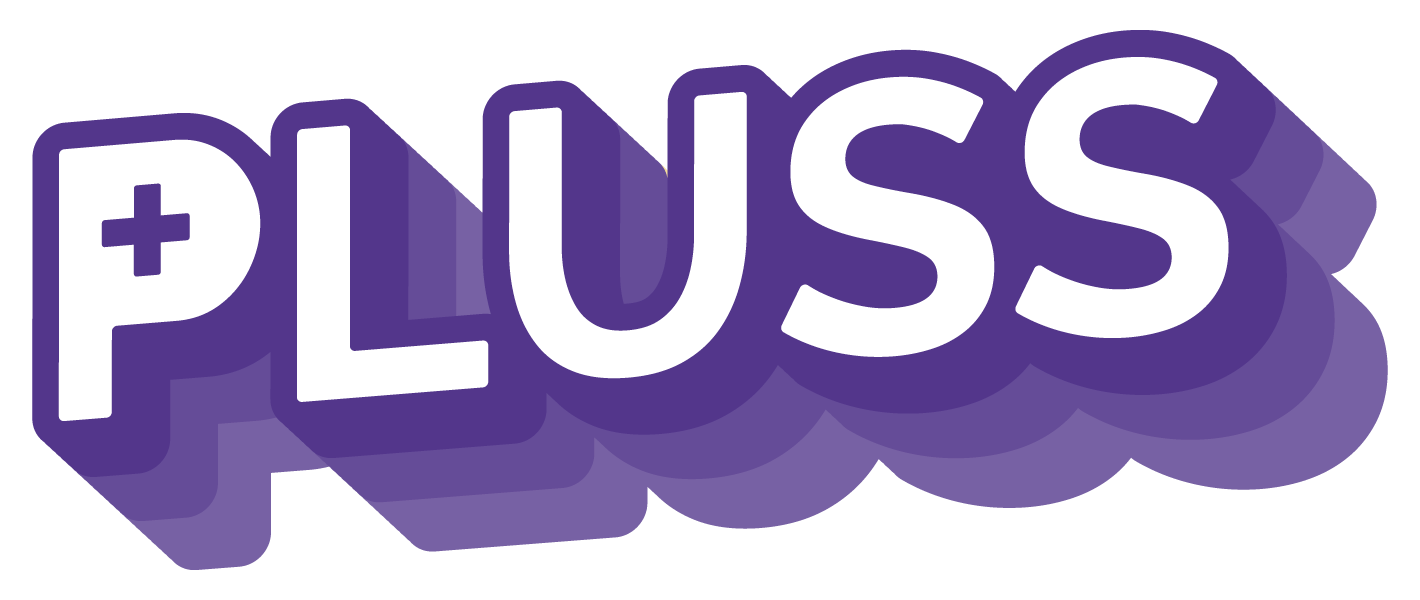

Leave A Comment